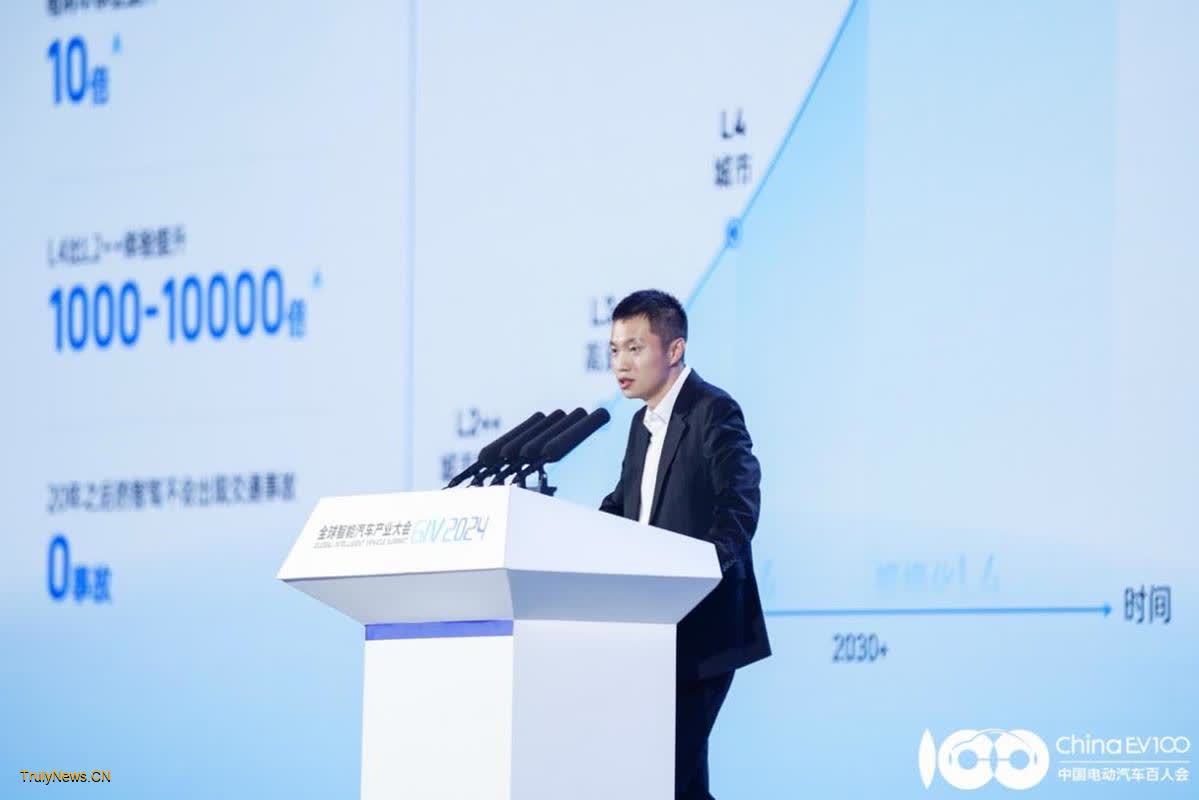
Chinese autonomous driving company Momenta unveiled its first mass-produced intelligent driving model on Sunday, at the Global Intelligent Vehicle Summit held in Hefei, Anhui province.
The large model integrates perception and planning into a deep-learning framework, offering an end-to-end solution to address long-tail challenges.
CEO Cao Xudong said it could tackle complex scenarios, like navigating through challenging road conditions.
He recounted a personal experience testing the model, saying he was driving from Shanghai to Hefei, and encountered people burning paper money on the road, a typical long-tail scenario during Qingming Festival.
But his vehicle successfully navigated through the situation. “I was excited, and I tested it for five times in a row and our vehicle made it.”
He highlighted the role of data in autonomous driving’s progress. “Data-driven solutions are the key to solving millions of these long-tail problems. Our model achieves a 99 percent automation rate, significantly reducing the need for human intervention,” he said.
Momenta’s model, already mass-produced and delivered to leading automakers, is designed to handle various challenging driving situations, significantly reducing driver workload while improving traffic safety.
Cao said Momenta is collaborating with automotive manufacturers and suppliers to accelerate the widespread adoption of autonomous driving technology.
“We aim to surpass the Moore’s Law of autonomous driving and deliver exceptional products,” he said.
The popularity of advanced smart driving functions is gaining momentum.
Cao estimated that 70 percent to 80 percent of new vehicles will feature high-level smart driving within five years, thanks to the progress in relevant software and the sharp fall in hardware cost.